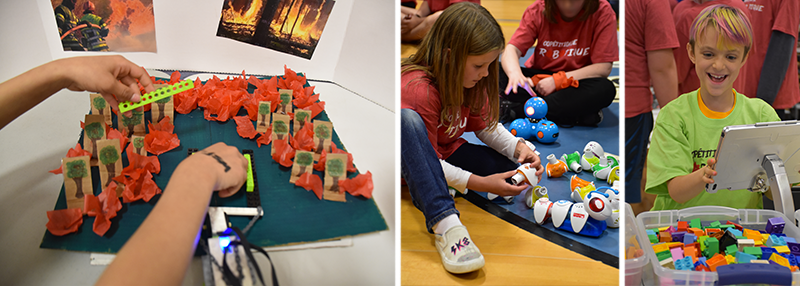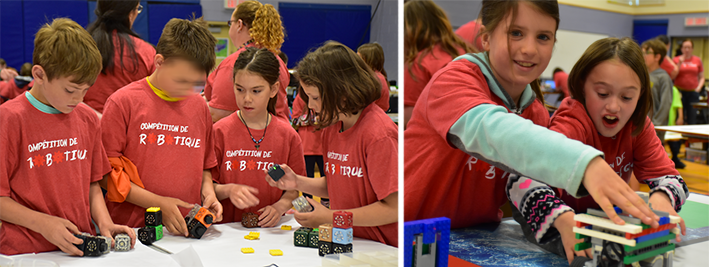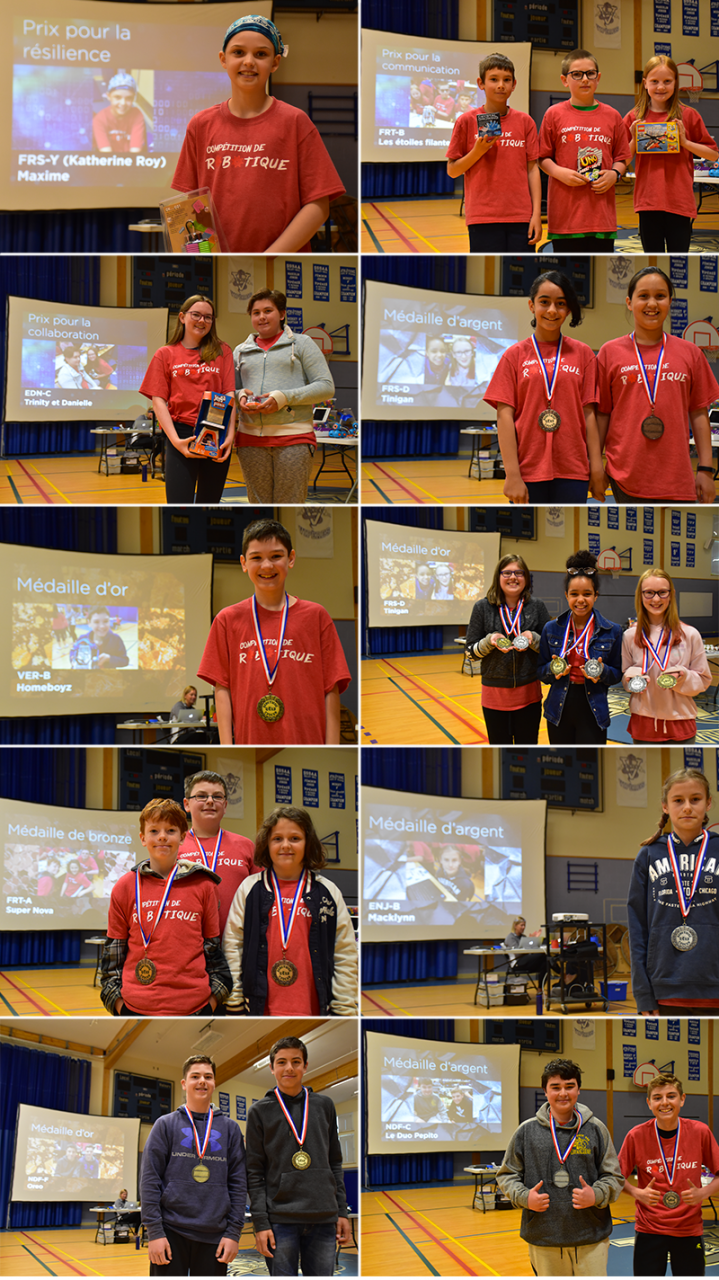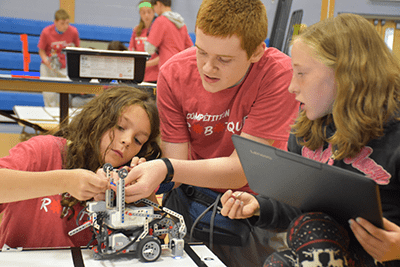Our school board hosted the second edition of its robotics competition on June 11 and 12, 2019 at the gymnasium of École secondaire catholique de La Vérendrye in Thunder Bay.
In order to ensure that their students are well prepared and learning, teachers participated in two 2-day training sessions (fall and winter) on robotics and its integration into the mathematics and science and technology curriculum. During these trainings, they explored basic robotics and programming concepts and then increasingly advanced programming concepts. They were also able to learn about the challenges that would be used in the robotics competition.
For the first time this year, teachers were required to be accompanied by a "student champion" in grades 4-8 for the second training at the Centre francophone de Thunder Bay. The goal was for these students to become robotics mentors with their teachers and be able to mentor their peers in the classroom. These student champions also had the opportunity to participate in an additional evening training session to further their knowledge and experience programming and robotics activities.
Finally, all of this preparation for the long-awaited robotics competition has allowed students in grades 1 through 8 from eleven classes and one robotics club in eight of our ten schools to develop their skills throughout the school year while having fun. Collaboration, communication, critical thinking and problem solving, innovation and creativity, and independent learning were all global skills* that our students had to use and develop as they learned about programming and robotics and then went on to the big competition.
This challenging and engaging competition of course provided students with challenges and perseverance, but even more valuable was the opportunity to bond with other students in the Council.
During the tournament, the challenges depended on the age of the students. The 2nd and 3rd graders were able to discover the Wedo robots through 2 challenges. The first one was a science exhibition: an oral presentation on a natural disaster and a robot with a mechanism to come to the rescue in case of such an event.

The second programming challenge was the polar bear: two scientists find themselves in Antarctica, but they are not alone. A polar bear approaches them because of the smell of their good tuna sandwich. The robots must move the cooler near the bear to allow the scientists to get away, bring them to a safe place, and then must retrieve the scientists' equipment. As for the others they had to prepare their EV3 robots in advance for the SUMO challenges (taking the opponent's robot out of the defined area).

Finally, the 3rd alarm challenge: a fire has broken out in the village. The robot has several steps to complete in the challenge such as moving the barrier to keep people away, rescuing people from the buildings and bringing them to a safe place and a "surprise" element, putting out the fire - moving the red fireball to a specific location. And again this year, we had a "surprise" challenge where no instructions were given in advance and teams had to program on the spot to avoid holes or make specific runs.

*Ontario favours a Comprehensive Competency Framework adapted from Defining 21st Century Competencies for Ontario - A Discussion Paper (2016) and CMEC's Pan-Canadian Framework for Comprehensive Competencies. [http://www.ontariodirectors.ca/CODE-TLF/docs/tel/Cadre_pancanadien_competences_globales_descripteu-3.PDF]
This tournament was made possible through a financial contribution from the Ontario Ministry of Education.
- Listen to the interview by Oye-Sem Won, educational consultant for Ca parle au Nord.



